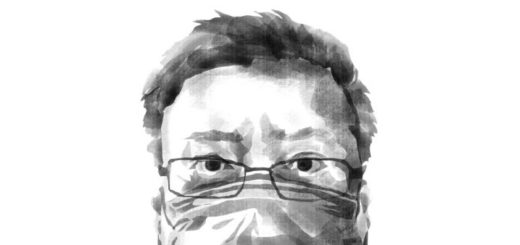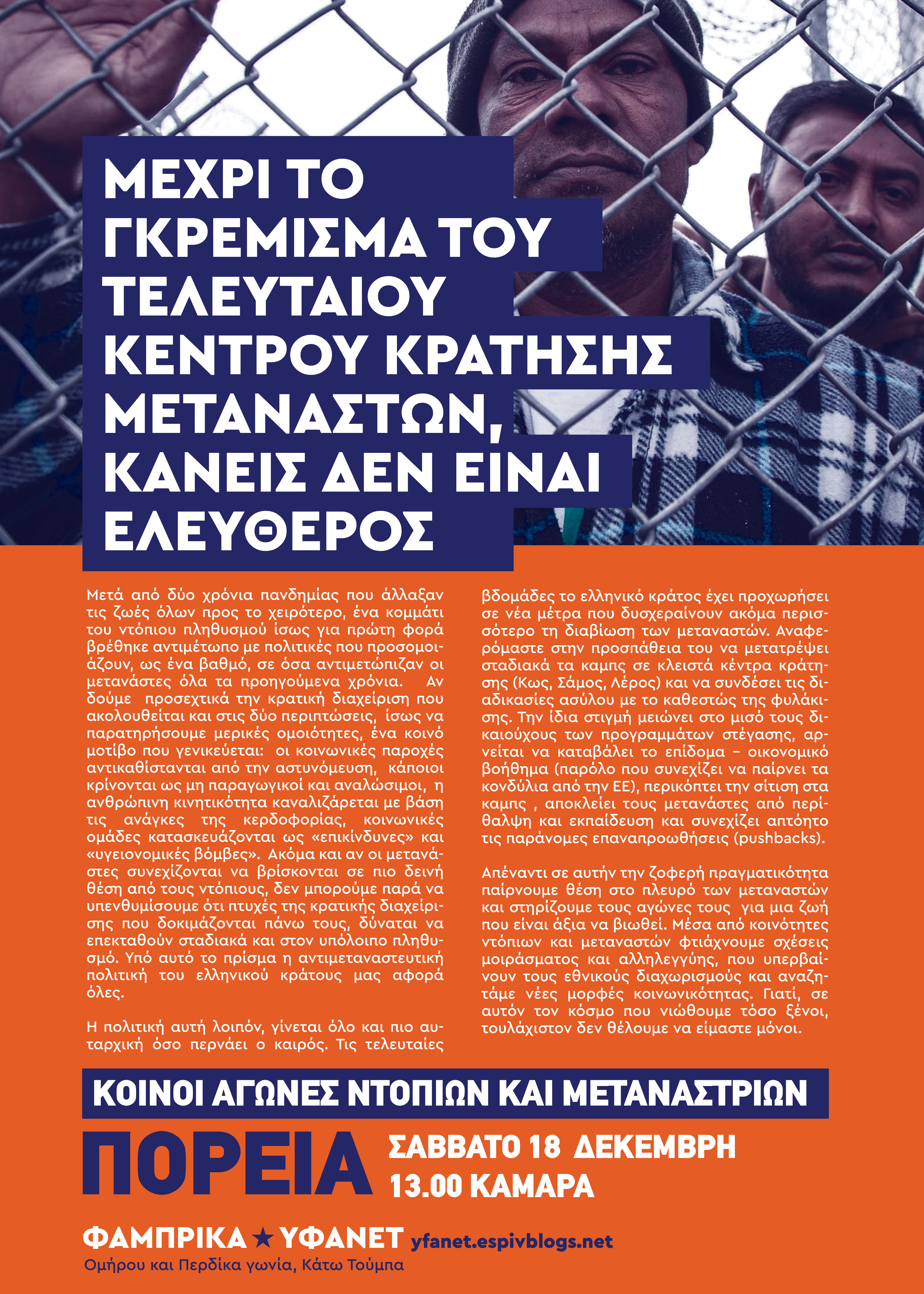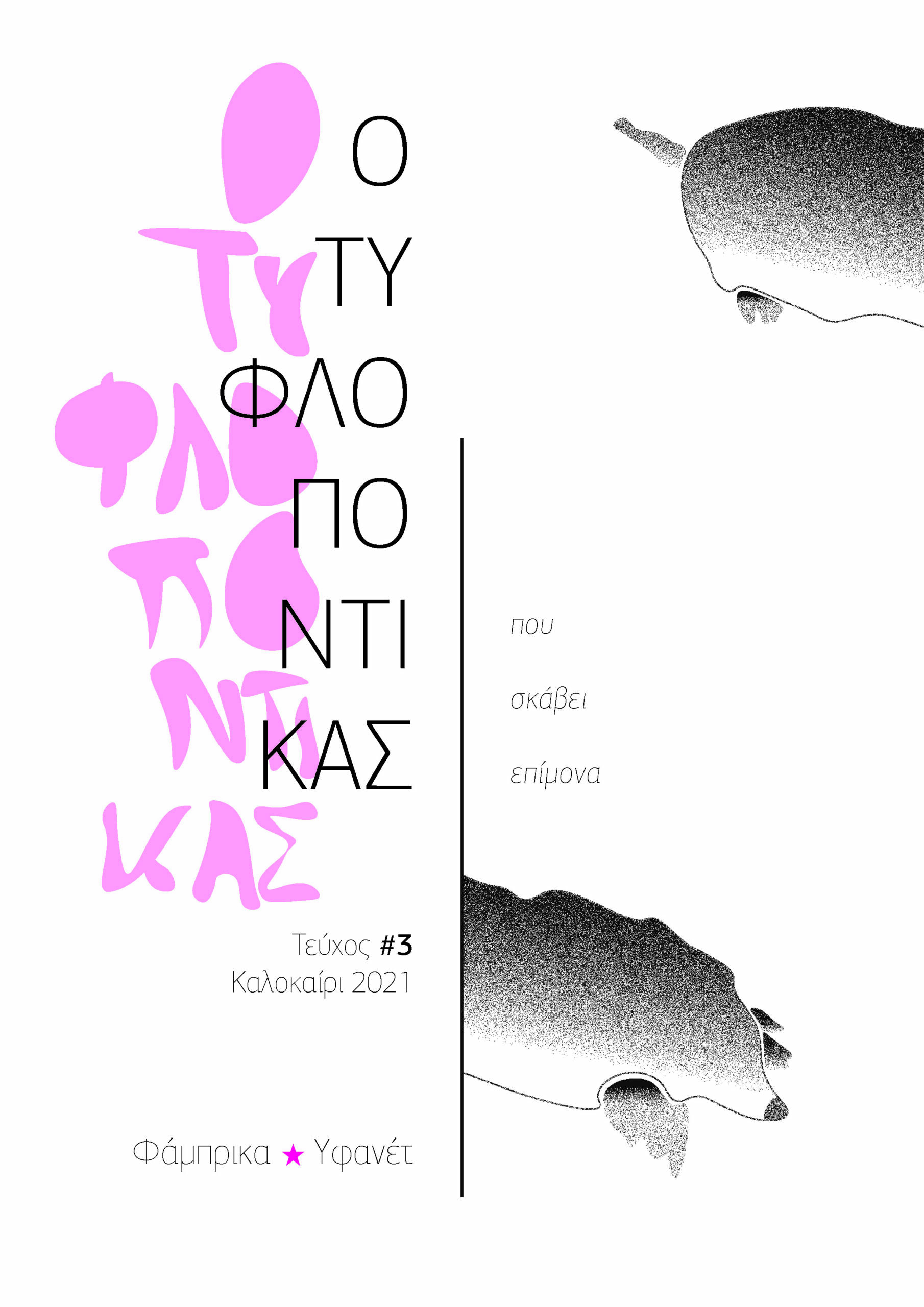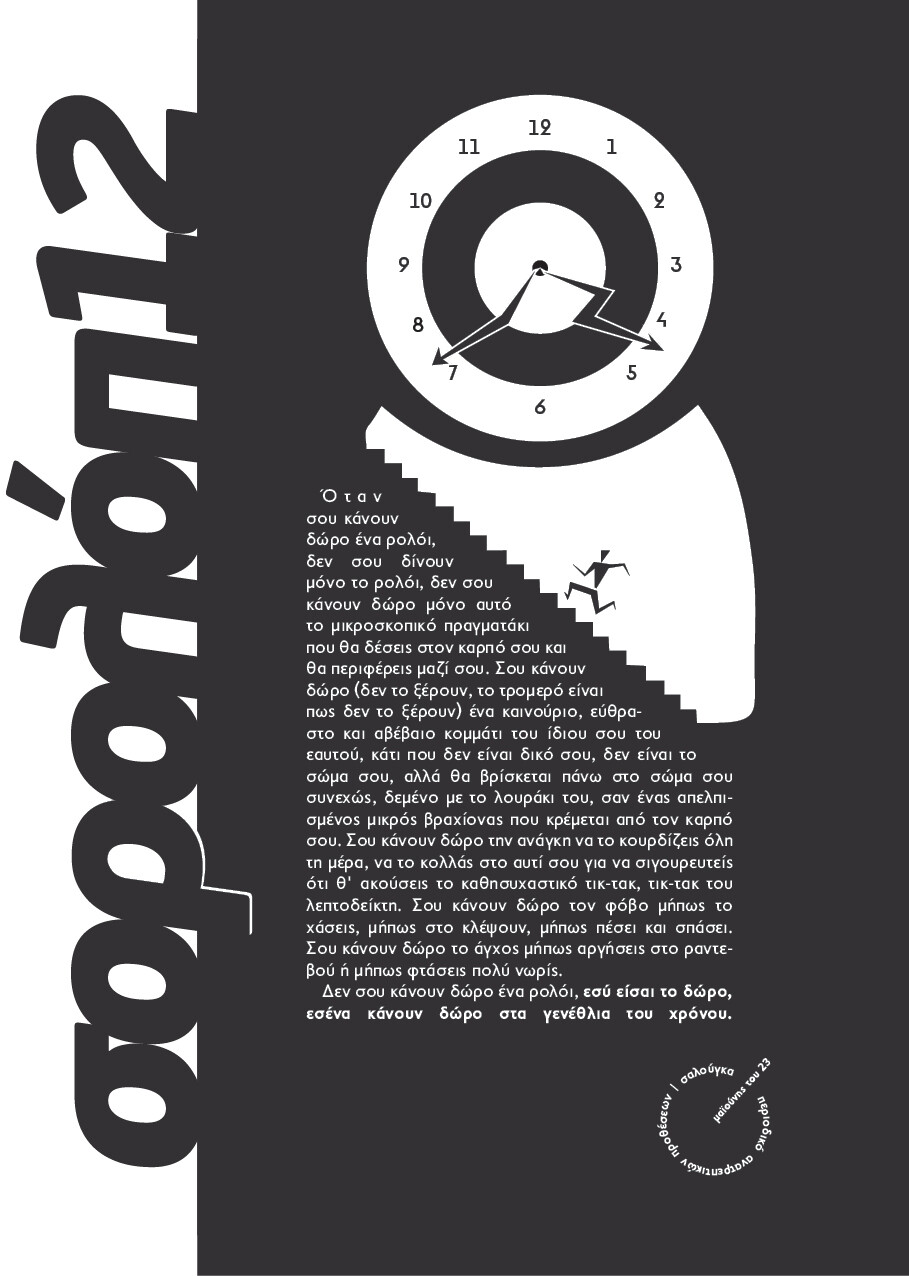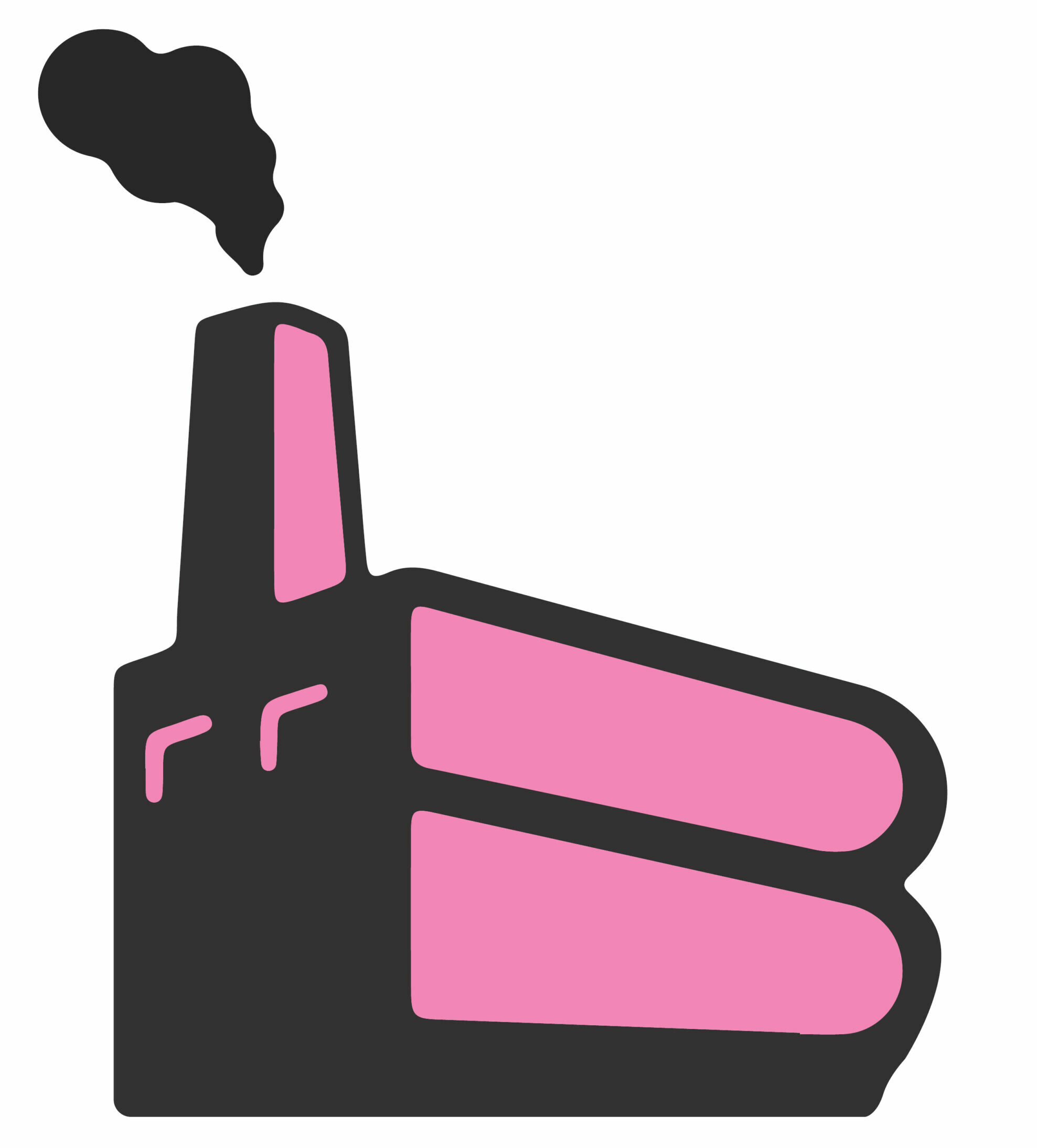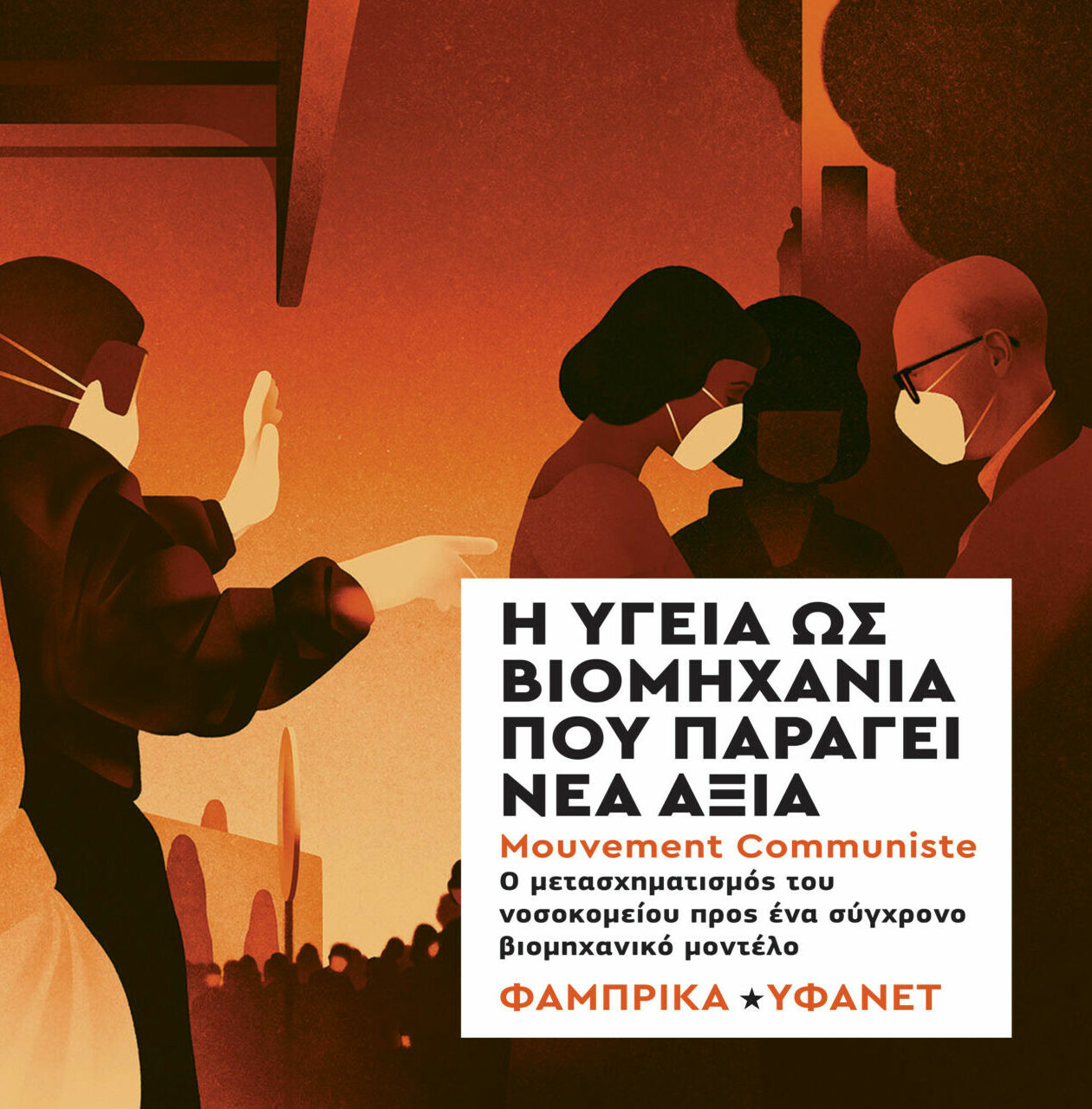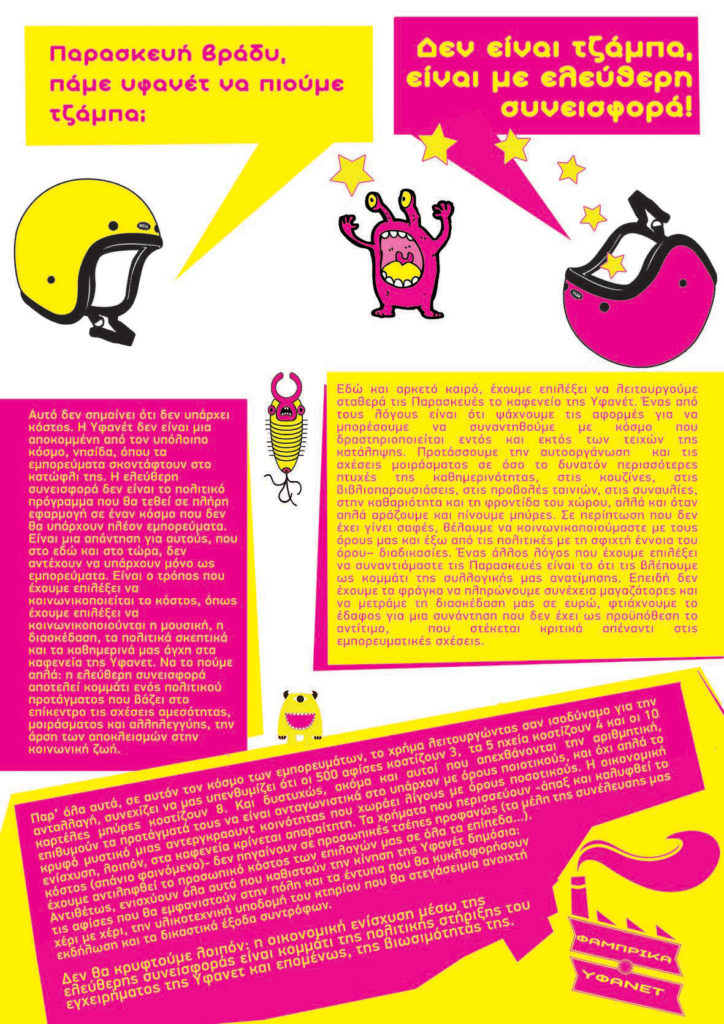Trapped between an Earthquake and a Virus: A Report from Croatia
This text was completed on April 16. Unfortunately, due to practical and collective problems, its publication was delayed. We thank the comrades from Zagreb who agreed to write this report for us. You can find this text in pdf here.
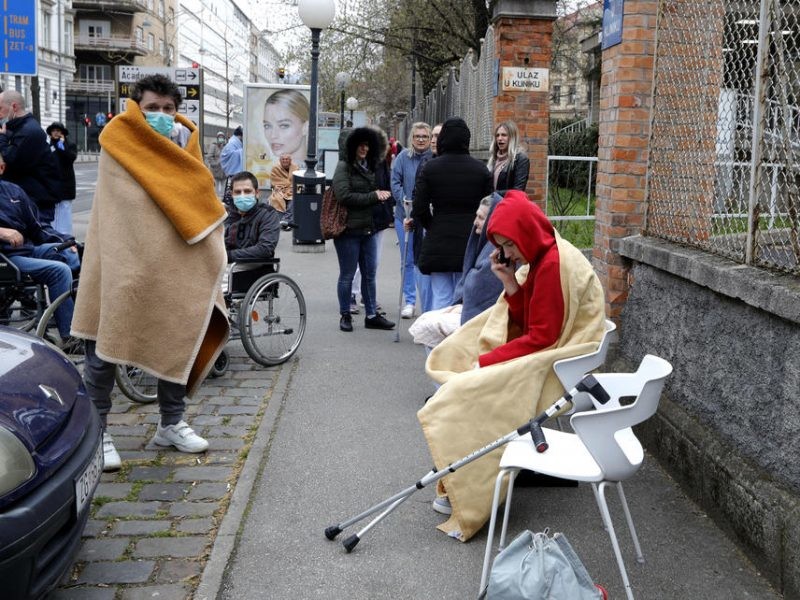
We write as members of the editorial of Antipolitika – the anarchist journal from the Balkans and of good night macho pride, a queer punk collective based in Zagreb. Our fear regarding the pandemic for now is that, now more then ever, people see the state as some benevolent protector and are therefore more likely to accept surveillance and control. The atmosphere of fear and urgency is pushing people to believe that any solution to a problem is good, and to question the implications of some solutions less than before. Leftist individuals and groups only contribute to stances that reinforce the state as they glorify some measures taken by the government (such us not allowing the prices of food and hygiene products to rise, the still relatively functional medical and education systems) as socialism. Also, some groups are using this moment to invoke tactics such as the popular front or conquering state power. Finally, even though many mutual-aid groups and networks were organized, we fear that they might turn out having just a humanitarian character and becoming auxiliary to the state in times of crisis of social reproduction, instead of contributing to a culture of continuous independent organizing despite and against the state. While speaking about conserving the health of the nation as being everybody’s responsibility, the government looks favorably at these mutual-aid networks, while at the same time continues with violent push-backs against migrants at the borders and makes it very hard to organize support and solidarity with them. Even though the experience of mutual-aid networks might contribute to a long-term change in people’s everyday lives, mutual-aid is also becoming part of the pandemic spectacle by being co-opted by the state, the media and companies.
The first case of infection with the corona virus was diagnosed in Croatia on the 25th of February. Today, on the 16th of April, there are 1791 persons infected, including some medical workers. Over the last two decades, the public health system is being weakened by commercialization and privatization. Some of the previously existing medical infrastructure, such as the institute for immunology that used to produce vaccines, has been degraded or destroyed. There is also the problem of lack of staff and equipment. Furthermore, two earthquakes (5,3 and 5 points on the Richter scale) damaged some of the hospitals in Zagreb which caused an additional challenge for the medical system amid the pandemic. Nevertheless, the healthcare system is for now relatively stable.
Prohibitions ad surveillance
The first measures have been implemented on the 24th of January and referred to the control of international airports and ports by the border police. On the 2nd of February all passengers on flights to Croatia started to be surveyed. On the 24th of February, the crisis headquarters of the ministry of health presented some additional measures: enhanced surveillance of the borders with Italy, self-isolation with daily mandatory contact with the epidemiologist for all travelers from affected areas etc. This was later changed to mandatory 14-day quarantine before entering croatia. The penalty for breaching self-isolation is a fine of 8000 kunas (1042 EUR) for the first time, and 120 000 kunas (15623 EUR) for more than one breaching. So far more than 1500 people were fined for breaching the imposed self-isolation. Many people are reporting their neighbors, sometimes even just for seeing them drying their laundry on their balconies.
Two days later the crisis headquarters introduced daily media sessions (at the beginning, twice a day). Since then, everyday they tell us how the health of the nation must be protected. The same day it was advised to postpone all gathering of more than 1000 people. On the 11th of March, the corona virus epidemic was declared on the entire territory of croatia. It was decided that from the 13th, all school and university lessons in Istria county, the county that is closest to Italy, will start to be held online and on TV. Two days later, the prime minister announced that all educational institutions in the entire country shall be closed from the 16th on and that lessons shall be held online and on TV from the 19th of March on. Kindergartens will be closed too. Parents who are not able to provide care for their children, can still leave them at school or in the kindergarten.
On the 19th of March, the Government put into power two new measures: the measures to limit social gatherings, work in commerce, services and sports and cultural events, and the temporary prohibition of crossing the border of croatia. The first measure prescribed social distancing, banned all public gatherings of more than five persons, suspended all trade activities except for supermarkets, pharmacies, stores with hygienic products, children supplies stores, bakeries, kiosks, gas stations and some other stores specialized in agricultural and building material. All cultural, religious and sport events were banned, all cafes and restaurants closed excluding food outlets for delivery and take-aways, services such as hairdressers, barbers, beauty salons, pools, driving and language schools etc. also closed. All open venues are obliged to follow certain procedures. Employers are obliged to organize work from home if possible and teleconferences instead of meetings. Crossing the border is prohibited except for croatian citizens returning to croatia, and other people in croatia who need to return to their countries. On that day it was also decided that all public transport shall be suspended and that train and bus stations shall be closed from the 22nd..
Many new measures were adopted on the 21th of March: a strict restriction of gathering on streets and other public places, a ban on leaving the place of residence and the decision on store opening hours. The first restriction is being implemented by the civil protection headquarters and the police. The ban on leaving the place of residence refers to all traveling between municipalities except for traffic and movement necessary for supply, daily migrations of employees in the services essential for: provision of health and veterinary care, delivery of medicines and medical supplies, maintenance of communal services, water supply and drainage, gas and electricity supply, security services, the media, residents requiring urgent medical care, for vital family reasons, such as the care of children and the elderly or the purchase of food and basic necessities, commuting, if work is necessary and cannot be done from home, emergency and operational services involved in the prevention of the spread of COVID-19. In order to travel between municipalities for the listed reasons, people must request a permit from their municipality. The decision on store opening hours ruled that the stores that are allowed to work will be open from 8 to 17. Recently, in the city of Vukovar, the police is surveilling the streets with drones.
As part of the “prevention” of spreading of the corona virus, the government suggested an amendment to the electronic communications act which would allow, under the guise of monitoring persons who violate self-isolation on suspicion of coronavirus infection, the tracking and surveilling the movement of all persons via their cellphones, without exception, without a time limit, as well as the non-transparent use of the collected data. The constitution allows for such changes to the law “in times of war or the immediate threat to the independence and wholeness of the state, and in case of major natural disasters”. The passing of such an amendment is decided by the parliament by a two-thirds majority of all MPs, and if the parliament cannot meet, it is decided by the president at the proposal of the government and with the signature of the prime minister. This idea was initiated by the special adviser for national security of the prime minister, but it was not supported by the minister of interior even though they are both from the same ruling right wing croatian democratic party (HDZ). Nevertheless, it was adopted by the government on the 25th of March and is now being discussed in the parliament. The unconstitutionality of the adoption of such an amendment without voting in the parliament was warned by all opposition parties, and some MPs stated that this would lead into dictatorship and a police state. However, most parties do agree with the idea of tracking people, only with some limitations: for example, the leading opposition party – the social-democratic party (SDP) – will support this if it is limited to the people who have been prescribed self-isolation, if these people are informed about it, if there is a time limit and if the collected data is destroyed after the pandemic is over. The prime minister, who is most vocally pushing for this, said that he does not understand all the fuss about this since all the people are already giving their private data to corporations such as google and facebook.
Labour
Already on the 17th of March, the government adopted a total of 66 measures to assist the economy in the wake of the coronavirus epidemic. The measures concern a total of eight ministries, many of which relate to the preservation of the liquidity of companies, which is always promoted as a way of preserving jobs.
In order to prevent losing job positions in economy sectors affected by the corona virus, the ministry of labour and pension system came up with measures such as a temporary suspension of some measures that where meant to support the employment of certain groups of precarious workers, such as young people and women. On the other hand, they introduced support for firms that are employing people with disabilities and they prolonged a measures for seasonal workers that consisted of at least the minimal wage for 6 months for the period when they are “non-active”. The state is co-financing the pension insurance benefits during this corona-crisis period for them.
The main support measure is the financial support for firms affected by the corona crisis to prevent dismissal of employees by which firms get circa 425 eu (minimal wage) per each full-time employed worker and 212 eu per part-time workers for a period up to 3 months starting from March, with the possibility of eventually extending this period. Recently they increased the wage for full time workers for 100 eu. Workers can get money from their employers on top of this, but most of them probably do not. Also, this wage is being handed on the 15th each month for the previous month which is not good for many people. It is estimated by the government that around 400 thousands of job positions can be preserved in this way. Those are jobs in tourism, transportation and storage, manufacturing industries (textiles, clothing, footwear, leather, wood and furniture) and jobs in any firm that, because of the decisions of the civil protection headquarters, are unable to carry on their business. This support does not apply to firm owners, founders, managers, etc. except for mini businesses and crafts.
The problem with this is that, employers will be able to decide if they actually want to distribute the 525 eu of government support to actual workers or not. Apparently there will be no control over how firms spend public money meant for preserving job positions.
When it comes to the violation of workers rights, we still do not have much data about it. There are some examples, like in the grocery chain Plodine where, despite overtime work, the employers called of the workers’ bonus of circa 195 eu and reduced their “Easter wage”, while also not distributing necessary protective equipment and ignoring the need to test workers who had recently arrived from Italy.
Apart from grocery store chains, another very problematic group of employers are delivery platforms such as Glovo, Wolt etc. Since they are just “platforms” and not “real employers” (deliverers are called “associates” and not employees since they do not have a standard contract and are instead being considered “self-imployed”), all the burden of adapting to the new situation is on the back of the deliverers. So, this “platform” business model enables these firms to free themselves from classic obligations of providing their workers with health and social care, and allows them to shift all these costs, as well as the risk of doing business, to workers. Apart from the risk of being infected (because of many social contacts with costumers), deliverers in Zagreb are also risking their lives moving by damaged buildings after the earthquake. In fact, the platform was pushing deliverers to deliver orders just after the earthquake when the city center was in ruins and many people (some probably infected) where out on the streets because of fear of another earthquake. Also, since people are increasingly making orders form grocery stores (and not just restaurants), the official maximum weight of an ordered, which recently was 9 kilos in Glovo, was raised to 25 kilos without prior notice to the workers.
Another problem that is not discussed enough is the gray economy. It is estimated that about 30 percent of the Croatian GDP comes from this so called “shadow economies”. Therefore, the liquidity of a significant proportion of workers to whom the gray economy is the sole source of income is not addressed by existing measures. Also, this workers who do not have official contracts cannot ask for unemployment benefits from the state if they lose their jobs.
The minister of finance announced that some state and public employees will also be fired in order to save money for the financial measures intended for saving the domestic market. However, he also said that they are considering raising wages for health workers, army and police employees and firefighters, although there has already been disproportionately high investment into the army and police in comparison to other civil protection sectors.
Apart from the mentioned measures, the government is working on changing the labour law itself. The president of the Independent Croatian Trade Unions issued a statement stating that the new law will include an unlimited possibility for employers to change contracted wages, material rights, working hours, work at a different working place, remuneration due to work stoppage caused by the epidemic, express sending of employees on vacation, exclusion of the obligation to consult and seek consent from the works council, etc.
Housing
According to the facebook profile of the Croatian Network for the Homeless, the abandoned wagons at the Zagreb main train station are the shelter to between 50 and 70 people. According to the homeless, for around 100. They say that there are at least 700 people on the street alone in Zagreb, while the ngo Fajter estimates that the number is as high as 1000 up to 2000. The exact numbers, though, are very difficult to estimate due to the specificity of homelessness, since homeless people are regularly on the move and their total number in Croatia is not known. The corona virus epidemic is closing down associations that provide the homeless with vital assistance. The Day Care Center for the Homeless, which provides the homeless a place to hang out, drink coffee and eat something, have some rest, wash their clothes, take a shower two to three times a week, has stopped working. Also various homeless shelters that are run by religious orders or other religious institutions (which also includes the only shelter in Zagreb which accepts people without a written referral from the national social care center) are being closed down due to the pandemic. Some cities, like Rijeka, had provided special shelters were people can stay during the pandemic and where they receive some care, but elsewhere most of the homeless have no means for self-isolation, hygiene, “immune system busting”, medical care nor the possibility of getting the needed information.
As more and more people are either losing their jobs or getting wages for sick/holiday leaves that are too small, they are also losing their homes because they are not able to pay the rent. Many people in Zagreb also lost their homes (around 1000 persons) because of the earthquake damages, but for them the state provided a “solution”. They forced students from a student dorm hall to move to another smaller hall and opened 1800 bed spaces for the people. During this process, they moved the stuff of the students who were not there at the moment without asking and put it in black trash bags. As a result of that, many students lost their belongings. The process of urgent moving out of so many students, also created a potential risk of spreading the virus, since many people were at the halls at the same time. Nevertheless, this was apparently a much more “logical” solution then to accommodate the people in some of the many empty hotels or airbnb apartments.
Since there were extra places in the student dorms, people who lost their homes to corona started to apply for a temporary shelter there, but their demands where declined on the basis that this accommodation is only for earthquake cases.
Homelessness became particularly critical in smaller towns where there are no shelters or care centers. In some tourist regions like Istria, many people who worked there were migrant workers who now lost their jobs and consequently also their accommodation, but are unable to go back to their countries.
The so called safe houses for victims of domestic violence are currently in an impossible position. First of all, the number of cases of domestic abuse increased, but the shelters are afraid of accepting new people before testing them for corona virus in order to protect people who are already users. However, the testing has not been organized. The ministry for demography, social policy, family and youth said that if a potential protege does not exhibit any symptom, they can be accepted to the shelter. Nevertheless, one ngo from Split sent a public request via the media asking people who have empty apartments or houses to donate them temporarily to victims of domestic violence, to reduce the risk of contagion.
The life of users of other homes, like homes for elderly and the sick, for children and minors without proper parental care, for people with physical or intellectual disabilities etc., has changed a lot since the pandemic was declared. The are not able to leave the home unless they suffer from serious health issues and must receive treatment in hospitals, and they are not allowed to receive visitors.
Migrants
Since borders are now almost completely closed and more heavily surveilled, it became even harder for migrant to enter croatia. Violent pushbacks are continuously happening, and a few new have been documented since the pandemic has been declared. On the 23rd of March and on the 6th of April, two persons were brutally beaten by the croatian police. The friends of the second person, the one beaten in April, had to build a stretcher with wood to transport them back to Bosnia. A local called the Bosnian police because the ambulance refused to pick him up on the border in Sturlic.
Before the pandemic was declared, migrants at the borders at least head some help from volunteers and NGOs, but now, since strict restrictions to movement had been imposed, this became hard to organize.
There were news about the shelter for asylum seekers Porin in Zagreb becoming a gated camp and that people living there are not allowed to leave. Namely, a fence started to be set around the building on the 13th of March. It was said that this was planned before the pandemic and that Porin did not became a gated camp, however, people who live in the shelter were not informed about why this fence was built nor how will this affect their lives. Furthermore, NGOs are not allowed to be present in the shelter and do their integration activities. Only people from the red cross and doctors of the world (who perform the initial checkups) are allowed to enter. Human rights NGOs who reported these news, later said that it appears that Porin did not become a gated camp. However, this is hard to say.
It must be emphasized that the treatment and prevention of COVID-9 in a pandemic is a form of medical emergency, which means that treatment is supposed to be free of charge for all refugees, asylum seekers, and “foreigners” who are in the so-called irregular status.
One person was taken into self-isolation at the Ježevo detention center due to a suspicion on corona virus infection. This is a person who has been deported from austria and has previously been granted asylum in croatia. It is not clear why this person, who has approved international protection and almost equal rights with croatian citizens, was placed in a detention center and not in some of the facilities that the city of Zagreb intended for the purpose of self-isolation.
Prisons
There are not many news from prisons, except that the prison and probation administration introduced a ban on granted leaves and visits in all prisons.
Organizing
Right after the first recommendations were given from the crisis headquarters for people who exhibit symptoms, people who came from abroad and elderly people to self-isolate or avoid going out, a group of people in Zagreb organized a mutual-aid network called Jedni za druge (something like “For each others”) for the sole purpose of bringing groceries, medications, etc. and providing transportation for people in isolation. They made a free telephone line and a facebook group where people can ask for support or offer help. They also printed leaflets and distributed them in buildings so people who need assistance can reach them. Many people got involved soon and the number is still growing so the coordination got very complicated really soon. By now, the group changed dramatically from its original purpose because people are not just asking for help with groceries but also for money, shelter, jobs etc. Actually, in recent times this is the most common request – people are losing jobs, apartments etc. and many have nobody to ask for help. We must say that this caused many troubles within the group with people experiencing burnouts for not being able to help. There where some discussions how to approach this issues but with no major success because the group is very heterogeneous – some people want to stick to the original idea and not do the work they think is the work of social workers, some people work for charitable ngos and have a lot of contacts and so they want to do everything, some people think the group should be doing advocacy actions and so on. For the cases that we are aware of, a great number of the people who asked for some help got answers from other people offering them food, car rides, money, accommodation etc. Also, similar groups got organized on the same models in many other towns. So, it is positive that some sort of mutual aid was organized really quickly and that the needs of some people were met. Nevertheless, there are many problems. One of them is that from the start the network was very ambitious and the organization became too complicated really soon. Consequently, new people who join are often not aware of how things work. Therefore, they rely on the knowledge of people who have been in the network for a longer time which leads into hierarchisation and a lack of discussion. The need for discussion is, however, urgent, since the mutual-aid network is now becoming more of a humanitarian network auxiliary to the state social system and the red cross, which is problematic.
The organization of solidarity kitchens such as the ones organized by anarchist food-not-bombs collectives in several towns was made impossible after farmers’ markets were banned and now reorganized. Namely, these collectives depended on farmers giving them free leftover food which was only possible in such markets because they are outside of the taxation system.
There has been no autonomous organizing regarding the problem of housing for now, as far as we know. The ngo The Right to the City made an appeal to the government asking for the establishment of a moratorium on all evictions and foreclosures, a demand that all the rental payments for the primary home should be forgoted for those who have lost their income, urgent housing for all the homeless etc. You can read the whole text in english here(https://pravonagrad.org/four-requirements-for-the-safety-of-home-during-the-crisis/)
When it comes to workers organizing nothing so far has really come from below apart from some fb mutual support groups. Some ngo/unions put in function sos lines that workers can call for legal advice, some are organizing campaigns in support of delivery workers etc. Some of this people are speculating about the possibility that some groups of workers will organize themselves soon, but we know nothing about it.


